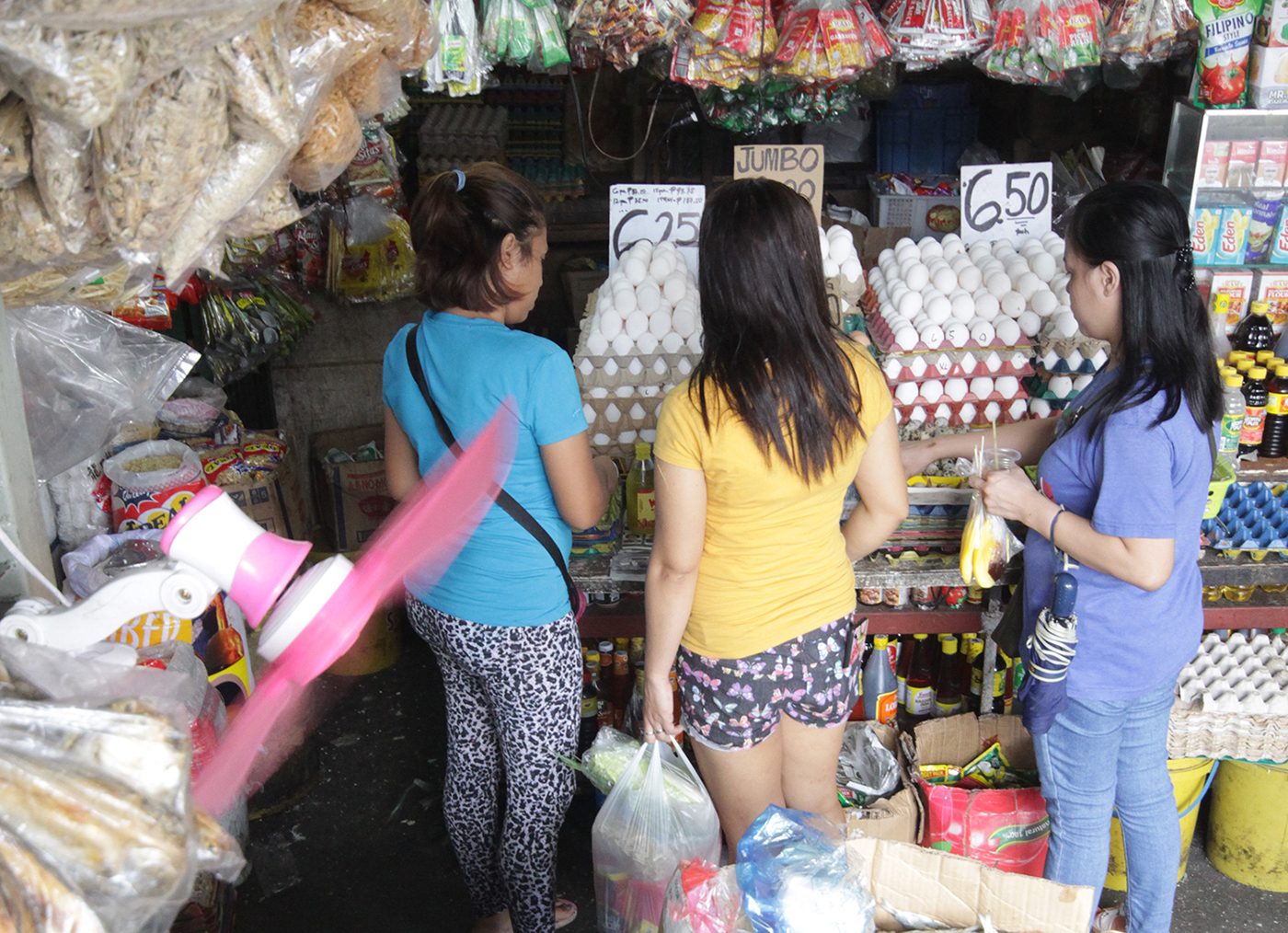SUMMARY
This is AI generated summarization, which may have errors. For context, always refer to the full article.

MANILA, Philippines – President Rodrigo Duterte’s economic team is confident that the sky-high inflation in 2018 will not happen again for the rest of his term, as the government ramps up reforms and external forces become favorable.
In its 176th meeting on Thursday, July 18, the Development Budget Coordination Committee (DBCC) even lowered the inflation outlook for 2019 to between 2.7% and 3.5%. The previous outlook was 2% to 4%.
The DBCC lowered the estimated range due to the increase in food supply and the passage of the rice tariffication law.
The inflation assumption for 2020 to 2022 was retained at 2% to 4%.
These projections are much lower than what was experienced in 2018, when inflation reached as high as 6.7%.
Macroeconomic assumptions, targets
The DBCC likewise maintained most of its assumptions on the economy.
The projected gross domestic product (GDP) growth was maintained at 6% to 7% for 2019, 6.5% to 7.5% for 2020, and 7% to 8% for 2021 and 2022.
Economic growth slowed down to a 4-year low of 5.6% in the 1st quarter of 2019, which means the government needs to play catch up to hit the goal. (READ: [ANALYSIS] The poor quality of economic growth under Duterte)
Meanwhile, revenue collections are projected to reach P3.15 trillion in 2019, 16.4% of GDP. Disbursements are targeted to hit P3.77 trillion in 2019, which is 19.6% of GDP.
For 2020, revenues are projected to increase to P3.54 trillion, which is 16.7% of GDP, while disbursements are programmed at P4.21 trillion or 19.9% of GDP.
Revenue and disbursement projections are estimated to rise to P4.42 trillion (17.2% of GDP) and P5.24 trillion (20.4% of GDP), respectively, by 2022.
“The comprehensive tax reform program can help ensure a reliable revenue base and, more importantly, enhance the modernization of our economy,” the DBCC said.
Given the revenue and disbursement program, the deficit target was maintained at 3.2% of GDP from 2019 to 2022. The economic managers said the figure was retained to sustain the government’s investments in infrastructure and human capital development.
The DBCC proposed a budget of P4.1 trillion for 2020, 12% higher than in 2019 and equivalent to 19.4% of GDP. The team said it will submit the proposal within the 2nd week of August. – Rappler.com
Add a comment
How does this make you feel?
There are no comments yet. Add your comment to start the conversation.